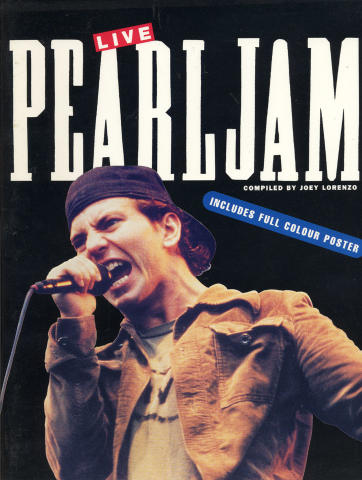Pearl Jam Live

Image may not exactly match item shipped.
Pearl Jam wrestled '70s-style stadium rock and '80s post-punk to the ground with a heavy dose of angry, riff-laden lyrics to become the voice of Gen X teenagers. Sharing its Seattle roots with Nirvana, Pearl Jam set off with their 1991 smash debut Ten followed by Vs. (1993) and Vitalogy (1994) to paint the appealingly bleak picture of death, depression, and general darkness that would be called grunge rock.
Eddie Vedder, the San Diego surfer who earned his spot in the band after he overdubbed lyrics on the demo, Stone Gossard, Jeff Ament and Dave Krusen were onboard for Ten, but the lineup changed several times after that to feature Dave Abbruzzese on drums and later Jack Irons, former drummer with the Red Hot Chili Peppers. Pearl Jam achieved huge success with a string of early MTV and radio hits and an appearance at the second Lollapalooza, but they were independent enough to spurn conventional rock concert venues and long stretches on the road and instead played smaller arenas.
Engaged in a dispute with Ticketmaster over high concert ticket prices, the band canceled their 1994 summer concert tour and retreated to the studio for their third album. Ultimately losing the suit against the ticket giant, the band recorded with Neil Young, set off on a brief period of independent ventures and returned in 1996 with No Code. The disc was a mix of styles that failed to please even ardent fans, but the harder rocking Yield (1998) benefited from a dedicated world tour launched from Australia. The group's popularity grew stronger after four successful albums in the 2000s. Pearl Jam's eight 2003 international and state-side tours were recorded live and released as full-concert albums. As with most successful bands, Pearl Jam has matured with their fans and can be found, in whole or in part, singing or signing for charity, engaged in political activist causes or even, occasionally, on Letterman.